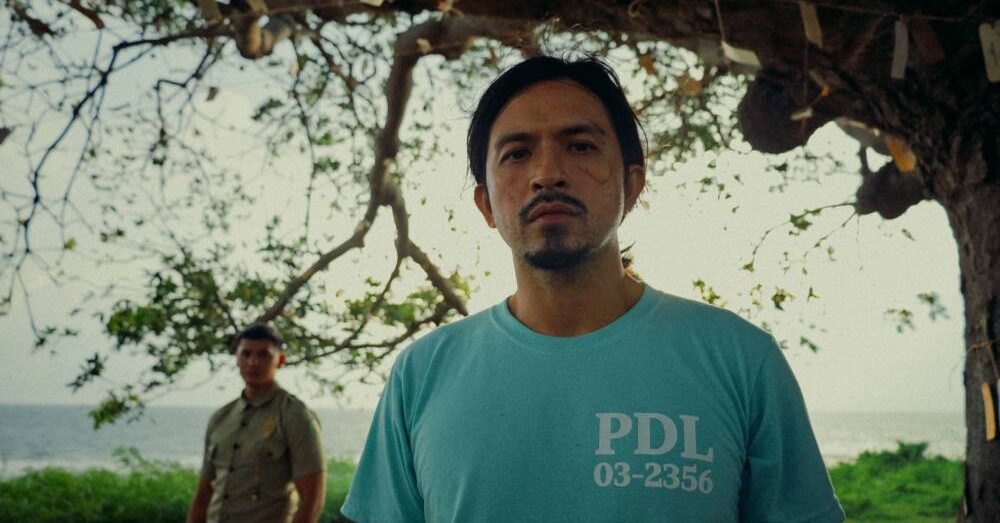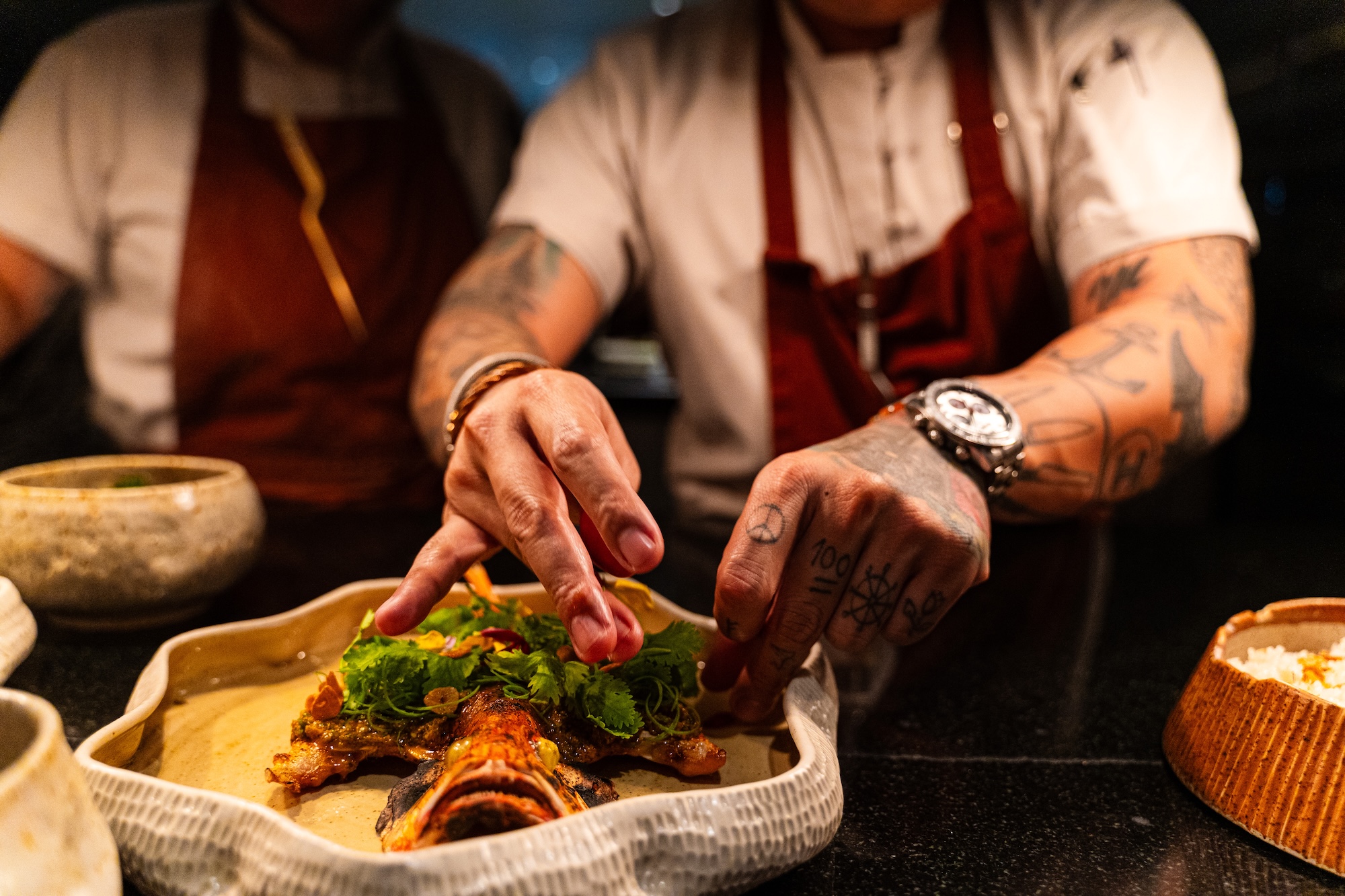Two out of every five Filipinos are considered poor.
With the constant battle on food shortage and over 100 million mouths to feed, the contagion has only worsened the country’s food systems. The economic impact of the pandemic ripples across all business sectors and there’s only so much we can do to secure a steady source of safe, affordable food.
“The threat of hunger is as real as the threat of the COVID-19 virus. Even those who survive this virus will have to face the following: lack of food, and non-existent food production and producers. Food does not appear like magic. It is sourced from various raw materials, which are produced by the hardworking farmers and farm workers. However, most of them are now locked down in their homes and prevented from crossing checkpoints. Who will produce and make food now?” says Department of Agriculture Secretary William Dar.
https://www.instagram.com/p/B-dvQQUnypN/
Limited supply of produce has a direct effect on market prices. According to Dar, the best way to sustain stable prices of agriculture and fishery commodities and other food products is to have an unhampered movement of goods from farm to market.
Following the law of supply and demand, the stabilization of prices will only be possible if there is enough market supply. It is for this reason that food security should be one of our top priorities—all efforts will be in vain if after suppressing the virus, people will instead die of hunger.
In a period when the importance of food is realized more than ever, how are our (often unspoken) frontliners in agriculture keeping their head above water as we wade deeper into this crisis?
Beyond the frontline
“It’s honestly been very difficult because money is tight for everyone, especially for farmers who supply further away from the more populated communities. We aren’t able to visit everyone due to the strict protocols implemented in Davao. We are limited to assisting the ones nearby,” says Mark Ocampo of bean-to-bar manufacturing company Auro Chocolate.
Since launching in 2017, Auro Chocolate has directly worked with its Mindanao farming partners in harvesting cacao from different regions in the Philippines. During this pandemic, Ocampo mentioned the difficulty in terms of cash flow as it is hard for most farmers to contact the market unless they’re already part of one.
“Farmers are not getting the support they need, from governments or from consumers. There needs to be a shift in the way farmers are regarded across the globe. Farming is considered a lowly job. But in fact, it is one of the most noble and important jobs in the world. No farmer, no food. Simple as that,” says Karla Delgado.
Hindy Weber’s Holy Carabao Farms has barely even recuperated from the devastation caused by the Taal Volcano’s eruption last January when the lockdown was implemented. It hasn’t been easy for both the land and the farmers. Weber, however, sees an upside in the situation. Many people have been contacting them for fresh food and are willing to pay any delivery fee whereas before they could not even charge a small amount without getting complaints.
Kai Farms’ organic permaculture, despite logistical challenges, has also seen good sales as the demand for organic soil used in edible gardening increases. “People want to be healthy and have strong immune systems more than ever. The pandemic and lockdown has become a wake-up call for many people who now want to grow their own food. We are getting lots of inquiries from people who are ready and want to know how,” says Kai Farm’s earth leader Karla Delgado.
Weber’s main problem meanwhile is how to keep their workers employed. Since they are unable to leave their barangays, half of their staff aren’t able to report for work. However, they still make it a point to pay their employees despite how financially incapacitating the pandemic may be for their farm.
https://www.instagram.com/p/B9JHslqpbtw/
There are many restrictions imposed by the government in response to the global health crisis so it has become more challenging for people to move around and access markets; thus, affecting the supply chain from producers to consumers. Weber’s and Delgado’s business models haven’t been affected as much by the lockdown as they grow the produce themselves and adhere to a farm-to-kitchen system, although there can be difficulty when it comes to consolidating produce from their partner farms.
There’s barely even talk about farmers and fishermen who are producing our food in the first place. The long due credit they deserve should’ve been more emphasized during this trying time, but it still remains at a state of disregard, even detriment.
“Farmers are not getting the support they need, from governments or from consumers. There needs to be a shift in the way farmers are regarded across the globe. Farming is considered a lowly job. But in fact, it is one of the most noble and important jobs in the world. No farmer, no food. Simple as that,” says Delgado.
https://www.instagram.com/p/B_eesAHHJtk/
Based on the Philippine Statistics Authority’s Trends in Agricultural Wage Rates Survey in 2018, agricultural workers in sugarcane and corn farms have the lowest daily nominal wage rates at P273 and P264 respectively while those from palay farms receive P325. The average age of a Filipino farmer is 57, which means there is a need to get more people into farming, especially the younger generation.
But, how can we secure a future for farming when the people who will soon lead the nation are reluctant or disinterested in agriculture? For the former Department of Agriculture Undersecretary for Agribusiness and Marketing, Agriculture, and Gender and Development Bernadette Romulo-Puyat, the best way to get millennials into farming is through active participation in agricultural programs. This way, young people will be able to fully immerse themselves in the experience of farming.
There are projects the government is currently rolling out for the agricultural sector during this pandemic. Weber acknowledges that farmers are getting help amid this heavy blow on agriculture but believes it would be more beneficial if distribution blocks were to open (while still observing proper and strict protocols for drivers).
“We cannot afford to cut off food distribution. How will people build their immunity when all they have to shop for are packaged and processed foods? I would like the populace to have access to healthy fresh food so they can become healthier and stronger amid a pandemic,” she says.
We’ve been hailing healthcare workers, government employees, and skeletal staff of essential businesses as frontliners and heroes of this crisis. But there’s barely even talk about farmers and fisherfolk who are producing our food in the first place.
Ocampo acknowledges farmers as having one of the most pivotal roles as we struggle to keep the economy from declining while Weber and Delgado agree that farmers aren’t only frontliners but more importantly, the backbone of society.
https://www.instagram.com/p/B-rQwhRHNOz/
“I think generally we need to pay more respect to our farmers and fishermen. They’re always relegated to the bottom rung of our economy. They are amongst the poorest. I think the people who grow and procure life-sustaining and health-promoting food for us should be regarded just as [healthcare is] valuable,” says Weber.
Delgado encourages consumers to be more grateful to farmers and more mindful about the food they eat every day, where it comes from and what type of soil it was grown in.
“[We should appreciate farmers] whether the kind of farming you are supporting with your purchase supports your own well-being or that of the planet. We are being taught life lessons during this pandemic. This is a time to reflect on the kind of world we want to live in and to take healed actions to make it happen.”












































